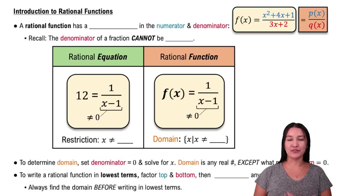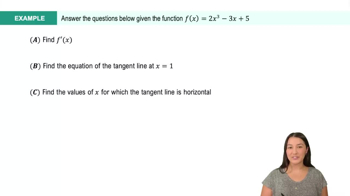Suppose g(x) = {x^2−5x if x≤−1
ax^3−7 if x>−1.
Determine a value of the constant a for which lim x→−1 g(x) exists and state the value of the limit, if possible.
 Verified step by step guidance
Verified step by step guidance Verified video answer for a similar problem:
Verified video answer for a similar problem:



 5:21m
5:21mMaster Finding Limits by Direct Substitution with a bite sized video explanation from Patrick
Start learning